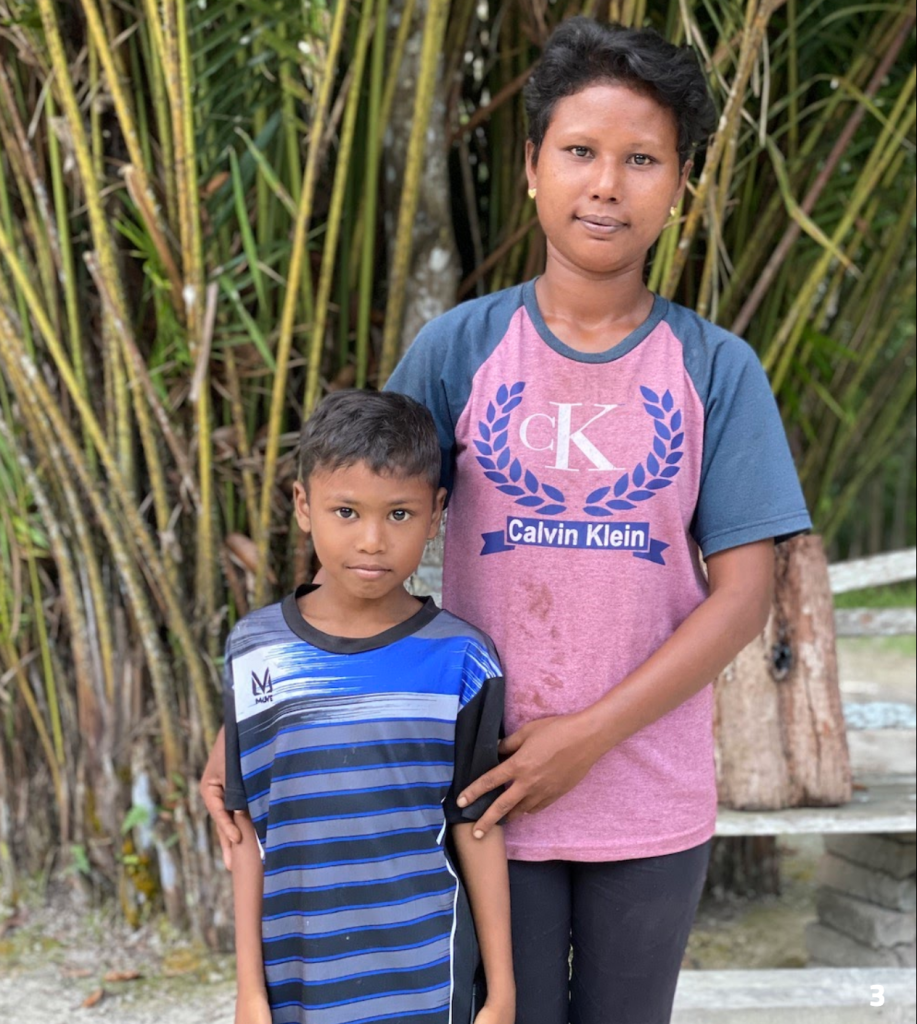
On our first trip back to the Orang Asli villages in Pahang since the Movement Control Order, we stopped by Kampung Jenit to check in on the villagers. Sitting cross-legged on the small patio outside Pak Cik Jelita’s house, we learned of Sakura’s struggles with raising her 8 year old son.
Occasionally boasting a smile that did not reflect the constant worry in her eyes, Sakura shared her story with us. Her son, Ridzwan was diagnosed with hemophilia A when he was only a year and six months old. Dropping out of school due to his medical condition that made him more susceptible to swelling, bruises and heavy bleeding, Ridzwan now stays at home.
“His teacher would hit him, he told me. So, I thought if I let Ridzwan go to school, and his teacher hits him, it would significantly increase his risk. He could get swollen and bruised. So, I had no other choice but to stop him from going to school.” – Sakura
Although Ridzwan requires injections twice a week, Sakura can only manage to treat him once a week as his medication needs to be refrigerated. Living in a village with no access to electricity means Sakura is unable to keep her son’s medication at her house. Instead, she has to drive an hour away to get it from her friend’s village.
This means every Friday, Sakura takes leave from work to drive to her friend’s village with a container filled with ice cubes. Once there, she places her son’s medicine into the container before returning home and injecting Ridzwan with it while it is still cold.
“As a mother, I feel sad because even when he is walking with his friends, his condition is not stable.” – Sakura
Sakura is never at ease, because even if Ridzwan were to walk for just 2 hours or play with his friends, his legs would become severely swollen, increasing his risk of bleeding.
Sakura is aware that injecting Ridzwan only once a week is not enough to keep him safe. However, she sees no way out of this as taking two days off from her full time work will compromise her job and income.
Sakura’s story emphasizes how an obstacle to basic needs such as access to electricity can often build up to become barriers in the fulfillment of other needs such as healthcare and education.
“Our life is difficult. Even though my husband works, if I stopped working, I don’t think our income would be enough. So, I have no other choice but to continue working” – Sakura
Sakura’s biggest hope is to have access to electricity so she can keep her son’s medication in a refrigerator in her house. This will significantly ease her burden; it will not only secure her job and income but most importantly, help save the life of her son.
Written by:
Lauren Chew, Communications Officer






